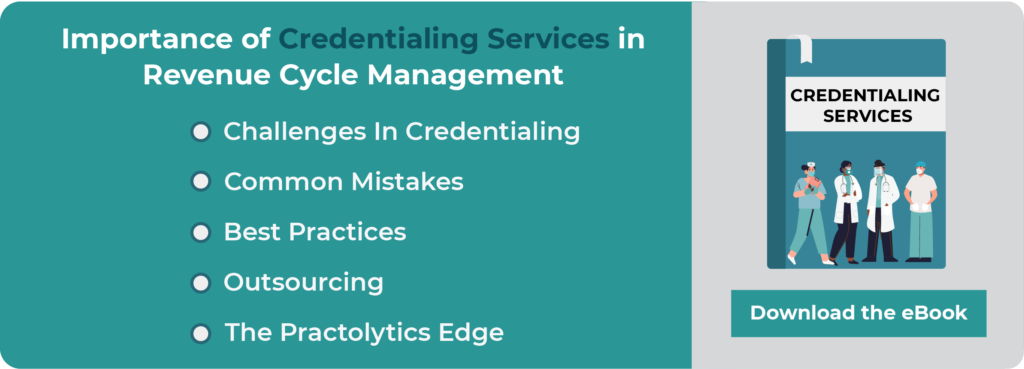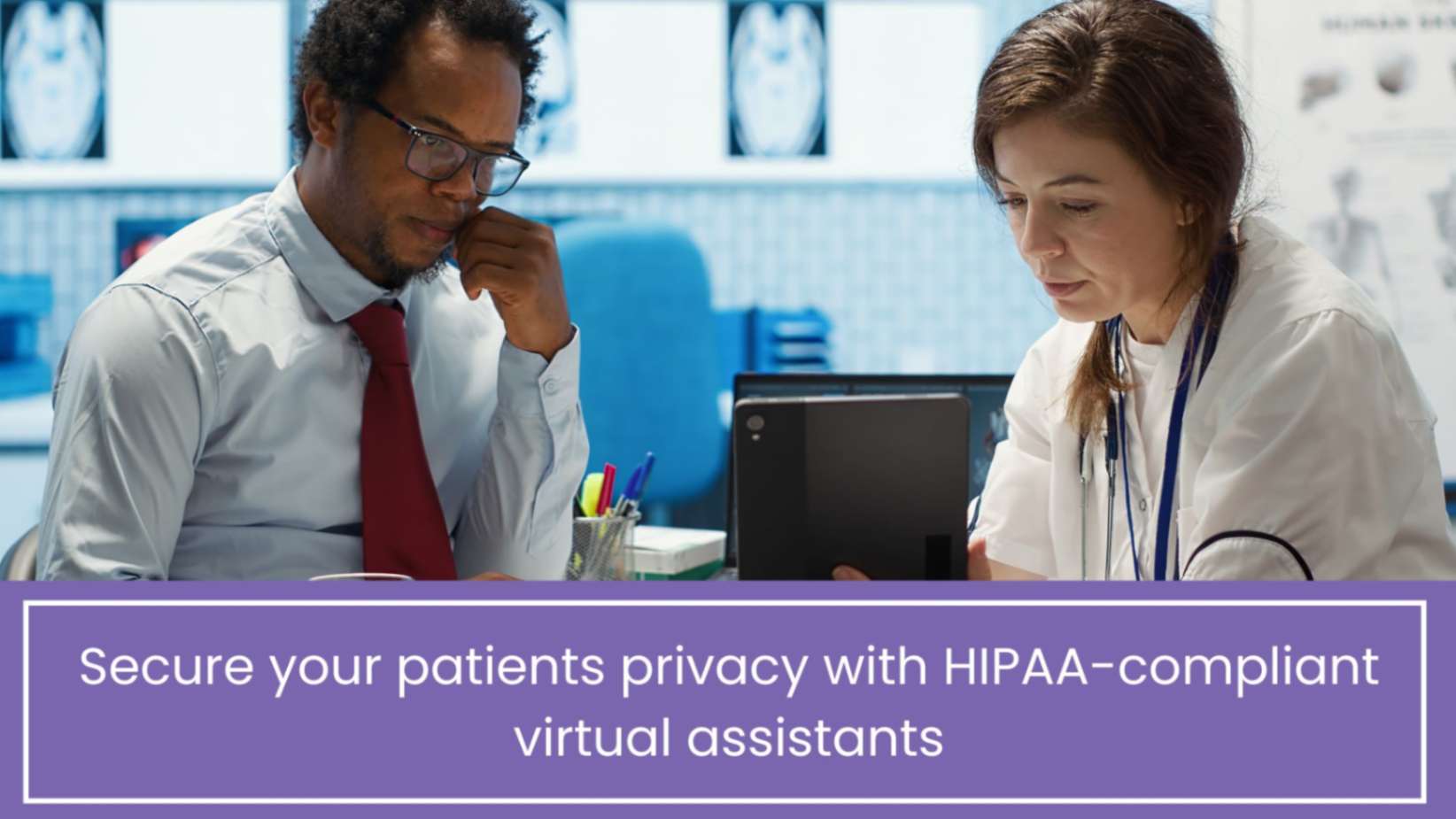6 Crucial Steps in Provider Healthcare Credentialing
When your organization hires a new doctor, nurse, or any other healthcare worker, it is crucial that they complete the healthcare credentialing procedure. This helps you to examine their credentials and talents while also obtaining them registered as healthcare/medical-approved providers by the medical insurance companies with which you usually operate.
Regardless of whether a healthcare practitioner has already been authorized by insurance boards, they must reapply every time they start work for a new practice.
Sadly, healthcare credentialing is indeed a time-consuming & pricey procedure that can consume a large portion of the facility’s budget. To help make the process more clear, Practolytics specialists designed a guide to assist you in evaluating the six crucial steps in provider healthcare credentialing.
Table of Contents
The Necessity of Credentialing
To understand the significance of medical credentialing services, also known as insurance credentialing, let’s first address why it is vital in the healthcare industry before discussing the processes.
To handle insurance claims, a majority of facilities must guarantee that the healthcare practitioners they employ are properly credentialed. Credentialing is essential for offering widespread access to healthcare, even when some of your patients are uninsured and pay on their own.
Diverse healthcare providers have varied healthcare credentialing processes. Whereas the procedure is crucial for practitioners, it’s also crucial for:
- Hospitals & healthcare organizations
- Orthopedic therapists
- Licensed physical therapists
- Counsellors & psychiatrists
- Dentists
To take Medicare & Medicaid, you must guarantee that your credentialing division complies with the government agencies guidelines like CMS (Centers for Medicare & Medicaid Services).
Aside from these federal rules, every state follows its own credentialing standards. Understanding and adhering to these criteria will assist in decreasing your firm’s risk in case of any malpractice lawsuits.
Healthcare credentialing, meanwhile, could be time-consuming or even exhausting. Follow these procedures to ensure that your healthcare professional receives valid credentials in a timelier manner.
1. Identify the Documents That Are Required
Be conscious that every insurer has a different set of guidelines when you start the credentialing procedure in healthcare. Every insurer you intend to deal with will require a comprehensive application, and sometimes even one piece of info that is missing can result in a wait of several weeks/months within the review process.
Prepare a list of every insurance provider that you intend to register with to verify that your applications are accurate. Then, make a list of each and every record that is requested.
These often consist of,
- SSN – Social Security Number
- Name
- Demographic info (origin, sexuality, nationality, and the spoken languages)
- Qualification and residency details
- Licensure Proof
- Professional experience
- Specialties & patient care
- Claim record
- Insurance Proof
Most of the information was probably included in your provider’s applications and CV. To assure its authenticity, you will need to take action.
2. Prioritize Insurance Companies
Because you could be required to submit many applications, it could be beneficial to prioritize the dossiers you file first.
- If you send a large number of your billing to single insurance, finish out their healthcare credentialing form first.
- Stay up to date about individual health insurance rules. Some health insurers enable providers who have already been insured in that other state to go through a simplified process. This could result in faster approvals.
- Many insurance providers shortened the application process to providers who have already been credentialed throughout.
3. Check for Correct Info
You should take into account that now the accuracy & standard of data are crucial when you start to compile the necessary papers and fill out individual applications.
Follow these procedures before filing any applications:
- Run a full background check
- Check educational background, license, professional certification, & reputation with healthcare groups like- AMA, ECFMG & ABMS.
- Examine the credentials, advantages, & health insurance claims background
Once you’ve gathered and reviewed these papers, you can present them to facility administration, who will decide which particular privileges to give to the provider. This info is crucial for the credentialing process.
Other alternatives include:
- Credentialing software – The ideal credentialing software saves data and can include features that allow your credentialing procedure simpler and more effective.
- Outsourcing – Is your human resources department overburdened with medical credentialing services? Using a medical credentialing service or outsourcing will possibly reduce both time and dollars.
4. Completing the Council for Affordable Quality Healthcare(CAQH)
Several large medical insurers mandate partner clinics to register for CAQH accreditation (At the same time, they must register their own applications).
- Once your clinic has submitted a form to a specific insurer, they will give you a Council for Affordable Quality Healthcare (CAQH) ID number & an invite to register.
- Any erroneous or missing info can considerably delay CAQH clearance.
- Be Ready to re-attest following submitting your initial application. What really is re-attestation? – To hold ongoing insurance eligibility, one must verify whether a provider’s data is accurate 4 times every year.
5. Sit tight for verification
After you’ve compiled and filed the application to insurance providers, it’s now time to patiently wait for their official approval. This could be a lengthy procedure.
Although many medical credentialing can be completed in 90 days or lesser, experts advise allowing 150 days. Healthcare credentialing could take much longer if major issues arise.
6. Keeping Track
Don’t simply wait 5 or 6 months for an insurance provider to contact you. Credentialing medical specialists reveal the importance of continuous follow-ups for a quick approval.
- Develop connections with major insurance business personnel. Developing a good working relationship with management, executive associates, as well as other staff members could help guarantee that applications are processed quickly.
- Instead of following up through email to boost response chances, use the phone.
- If you notice that more info is necessary, compile and check all documentation as quickly as possible.
Recertification
The provider will potentially be credentialed by an insurance committee. However, this doesn’t assure that they’ll remain to be credentialed forever.
However, healthcare credentialing is indeed a continuing process that will need extra effort in the future.
- It is crucial to alert insurance companies if you notice an inaccuracy in a worker’s info. If they find the inaccurate info before you file an official correction, they may revoke your license.
- Providers always need to renew their credentials every three years.
As previously said, credentialing software will assist you in managing credentials. Additionally, it has to remind you when a particular provider’s credentials need to be renewed.
Nevertheless, insurers must also give a reminder after 3 years. Act quickly to ensure that your provider is able to keep deliver patient care continuously.
Tired of dealing with insurers? Utilize Practolytics’ expertise
Partnership with providers of health insurance will require a significant amount of your healthcare clinic’s resources.
Contract Negotiation, in addition to credentialing, is indeed a time-consuming procedure that necessitates your full focus. After all, the insurance provider is continuously changing the terms & conditions of the payment contracts, apparently in the hope that you will be too occupied with some other documentation to negotiate a better deal.
Practolytics is your best choice. Outsourcing your insurance negotiations to free up resources and time for other critical tasks ranging from credentialing to patient care delivery and beyond.
At Practolytics, we understand that spending more time with patients makes complete sense. Please feel free to contact us at: [email protected] right now to learn more about the medical credentialing procedure and how we can help your practice.
ALSO READ – How Much Dollars Are You Losing on Medical Credentialing?
Talk to Medical Billing Expert Today — Get a Free Demo Now!






